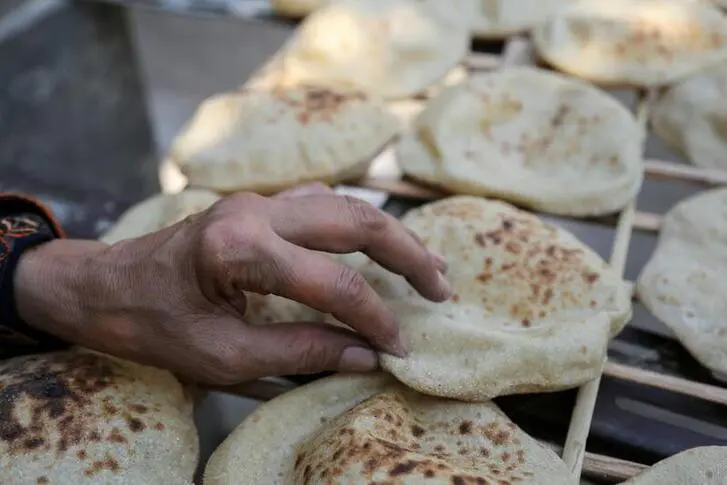PHOTO
CAIRO - Egyptian Supply Minister Ali Moselhy said on Thursday deciding a new price for subsidised bread "will take time", while announcing a rise in the price of vegetable oil for the second time this year.
Egyptian President Abdel Fattah al-Sisi in August said it was time to increase the price of the country's subsidised bread, revisiting the issue for the first time since 1977, when then-President Anwar Sadat reversed a price rise in the face of riots.
The subsidised loaf has been sold since then for 5 Egyptian piasters ($0.0032).
"The prices of commodities have been increasing since January, across vegetable oils markets, sugar and lately wheat," Moselhy told a news conference in Cairo.
The wheat price set by the Agriculture Ministry will take into account inflation, he said, adding that the strategic reserves of the world's largest wheat buyer were sufficient for five months.
"We should all work together to solve this external problem. This is not an internal problem. It is an external inflation problem," he said, adding that "totally unexpected" global shipping prices also were a factor.
Asked about hedging for commodities, Moselhy said Egypt was working with Citigroup and the finance ministry on the issue, without elaborating.
Ocean shipping prices have surged in past months, adding extra costs for grain importers. Egypt's state commodities buyer, GASC, which traditionally used Egyptian state-owned ships to carry its wheat imports, decided to suspend a 15% price advantage given to the National Navigation Company (NNC) earlier this month.
Moselhy said that from Nov. 1 the price of a 1 litre bottle of subsidised vegetable oil would increase to 25 Egyptian pounds ($1.60) from 21 pounds per bottle.
Egypt, which imports 95% of its vegetable oil needs through state buyer GASC, offers buyers a blend of soybean and sunflower oil covered by its extensive subsidy programme. Moselhy said that the decision could be revised if costs drop in the coming year.
Moselhy said authorities were working hard on delivering a "fair prices" food subsidy programme. "But, the important thing is the regular availability of goods," he added.
($1 = 15.6600 Egyptian pounds)
(Reporting Sarah El Safty and Nadine Awadalla Writing by Maher Chmaytelli Editing by Aidan Lewis and Steve Orlofsky) ((maher.chmaytelli@thomsonreuters.com;))





















